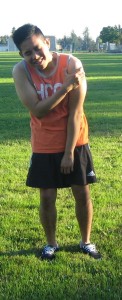There are thousands of spiders all over the world. Most do not pose serious danger to children since their venom is too weak or their jaws are not strong enough to pierce through the skin. The black widow spider is considered as the most venomous spider. Even though the venom of the black spider is more potent than the rattlesnake, their bites are not life-threatening. On the other hand, if the child was bitten by this spider, it is vital to seek immediate medical attention.
How to identify a black widow spider
The black widow spider is one of the only two spider species with bites that pose serious health risks. These spiders are described as shiny, black and typically reach the size of half an inch to an inch across. The abdomen of a black widow is round, large and usually marked with an orange or red marking with the shape of an hourglass on the underside.
Even though the bites of the black widow spider are serious, the bites are rarely deadly. Approximately 4-5% of black widow bites resulted to death in the early half of the 20th century, but with the advancements in the field of medicine, it reduced the number of deaths drastically. Children along with the elderly and those who have high blood pressure face the highest risk for ending up with serious complications after sustaining a black widow spider bite.

What are the signs and symptoms?
A bite from a black widow spider on a child strikingly resembles a target with a pale area surrounded by a red-colored ring. These bites can cause intense muscle pain and cramps within 2 hours.
The pain usually starts in the shoulders, back, thighs and abdomen. Additional symptoms tend to vary from child to child and usually depend on the amount of venom injected by the spider during a bite.
The child might feel dizzy or appear restless. Other accompanying symptoms might include swollen eyelids, sweating, difficulty breathing, vomiting, restlessness, nausea, increased blood pressure and even leg paralysis.
Treatment
Once a child is suspected with a black widow spider bite, seek immediate medical care. Cleanse the bite site thoroughly using soap and water. Apply an ice pack to help minimize the swelling.
Antibiotic lotions can also help prevent infections from developing as well as medications such as acetaminophen can reduce the pain. These medications should be used under the supervision of a doctor. There are also prescription muscle relaxants and pain medications that can be given by the doctor. In rare circumstances, the doctor might apply an antivenin or require hospitalization.
Preventive measures
It is important to note that black widows are not aggressive and will not bite humans unless they brush up against them and disturb the web. Children must be taught to identify and avoid black widows in order to prevent bites. In addition, they should be taught to be careful in shadowy areas where the spiders are quite typically found such as garages, closets, woodpiles and attics.
